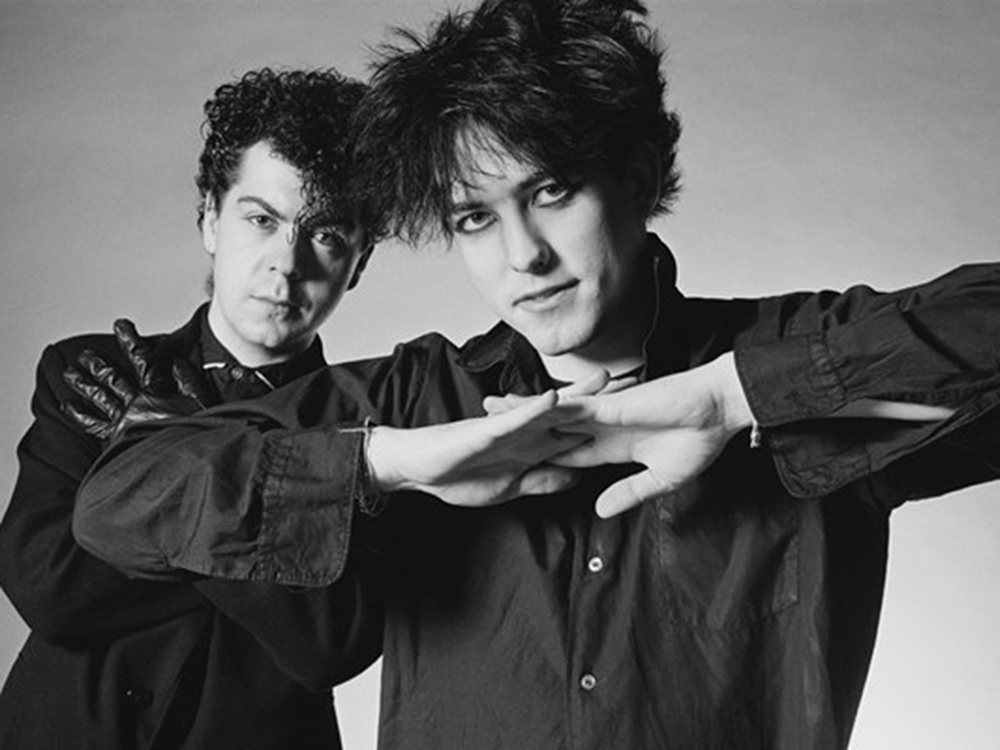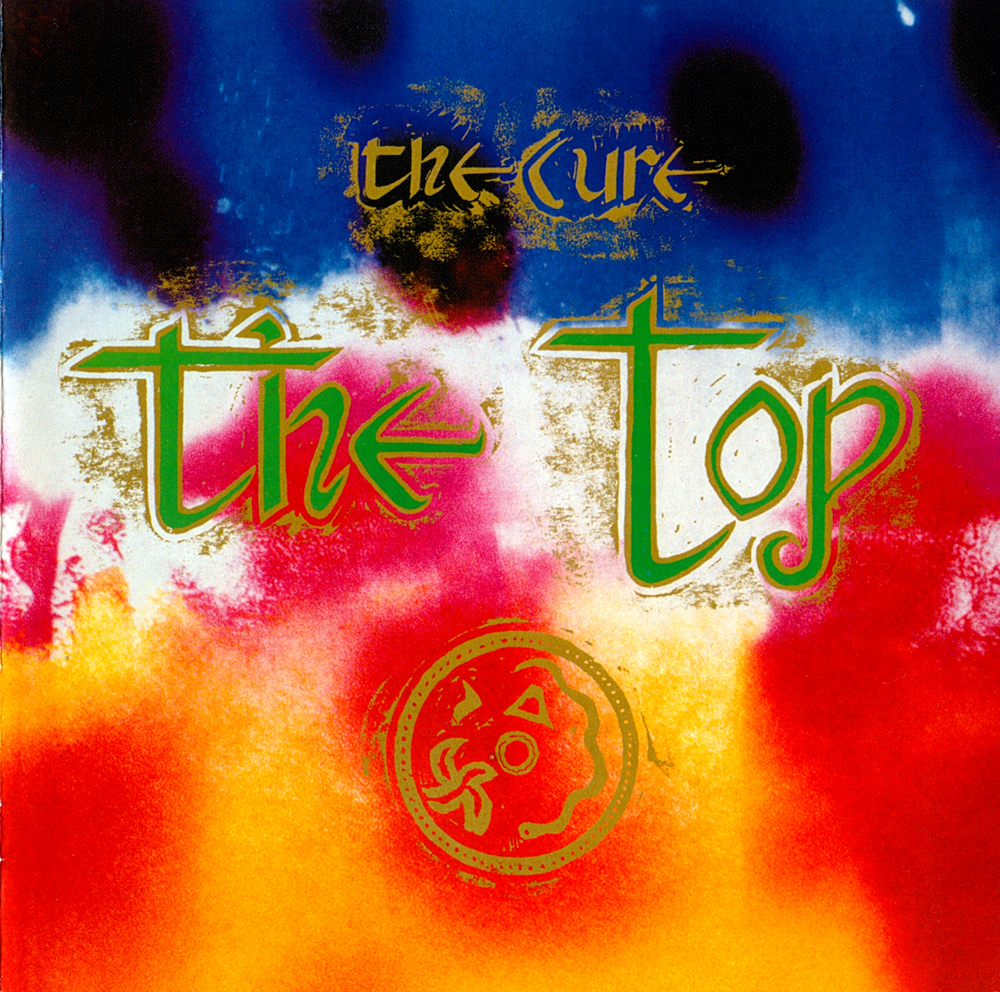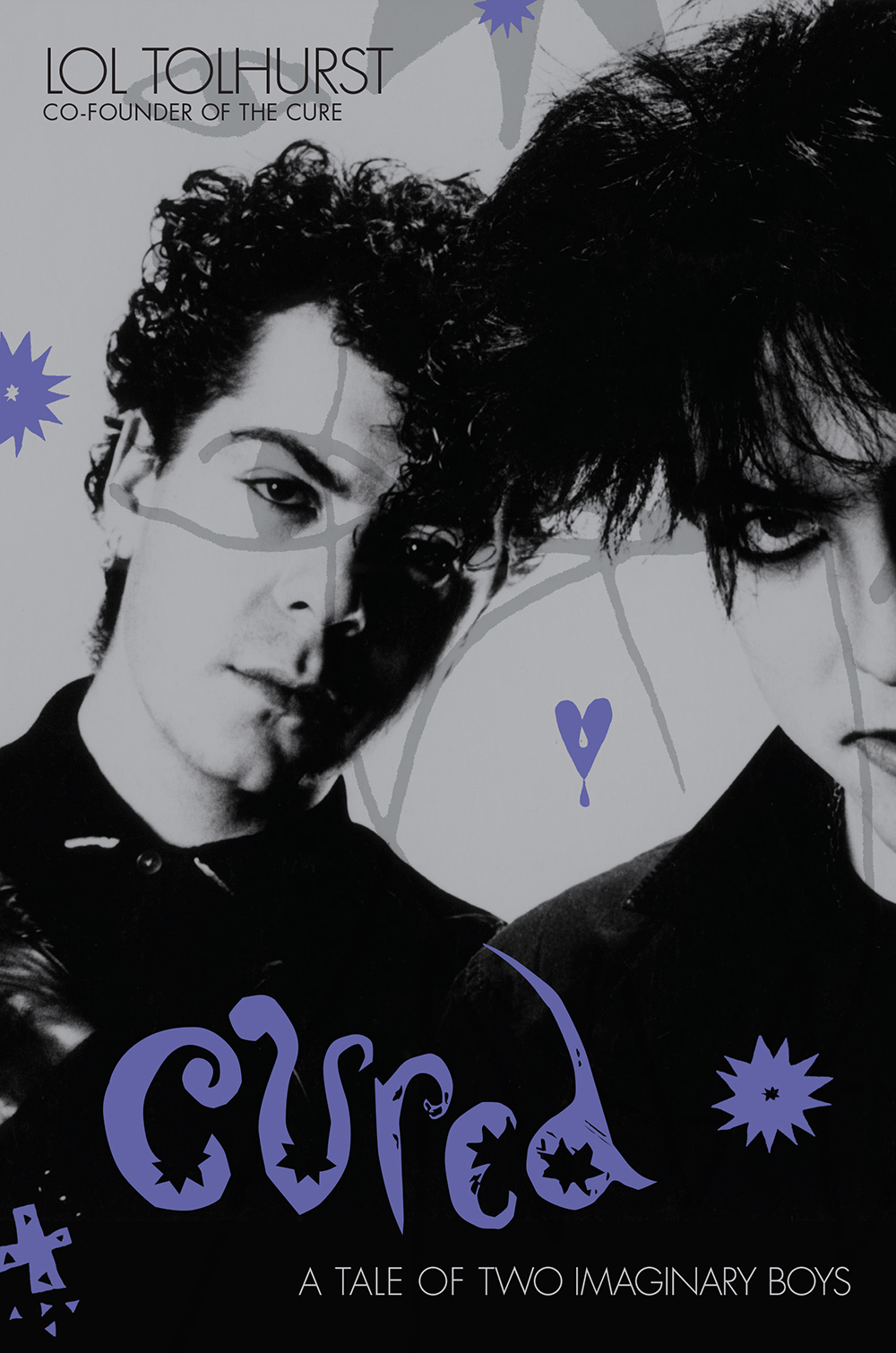As a founding member of The Cure, Laurence “Lol” Tolhurst is a major part of alternative music history. Now fans everywhere will have another piece of The Cure’s fascinating saga revealed. On October 11th, Tolhurst’s memoir, Cured: The Tale Of Two Imaginary Boys was released to the public and it’s set to change the way we see one of the globe’s most loved bands. Told from his personal perspective, the book is a no-holds-barred chronicle of The Cure’s journey, from punk beginnings to worldwide recognition. It covers major moments and everything in between – starting with Tolhurst’s childhood friendship with Robert Smith to founding the group in 1976 to his rocky 1989 departure due to addiction.
The Untitled Magazine’s editor-in-chief, Indira Cesarine, had a candid conversation with Tolhurst about his latest book Cured, and history with the legendary band that is known for having been a founder of the alternative music scene. Read the full interview below for more about The Cure’s punk beginnings, Tolhurst’s relationship with Robert Smith, and the legacy he hopes to leave behind.

Indira Cesarine: I’ve been reading a lot about your new book, Cured. What inspired you to write a memoir of your days with The Cure, thirty years later?
Lol Tolhurst: It’s the best time. I don’t think I could’ve had the right perspective if I had written it in my mid thirties or even mid forties. I’m in the second half of my life and it needed to have that distance between events to make sense of it all. My book agent said that he has clients who are in their thirties and writing memoirs about things that happened in their twenties and it’s not the same. They can’t have a reasonable viewpoint because the events happened so recently. I really think that’s true. The other thing is, I had a sort of epiphany around 2013. I live in California and I was in Hawaii on vacation and I saw The Cure play in Honolulu for the first time. I ended up sitting on the beach in Waikiki at about 4 o’clock in the morning just talking to Robert about all kinds of things. It suddenly occurred to me that we’re all older men now and now is the time to record this and make something and tell people. Otherwise it might be lost, if I left it another twenty years I might not be competent enough to write it!
IC: It must have been pretty amazing to sit down with Robert and hash out all of those things.
LT: It’s part of an ongoing relationship. Robert and I were friends before The Cure started and we were friends after I left The Cure. It’s the friendship that comes first with us. The whole idea of The Cure is that it is not like a band, it’s more like a family. We probably bump into each other a few time every year and the first thing we talk about is our families. We don’t talk about music, we don’t talk about the business that we still have together. We just talk about family. I know all of the people in his family and he knows all of the people in my family.
IC: The book talks about The Cure and your relationship with Robert, who you met when you were five years old. What inspired you guys to form the band together in England?
LT: A couple of things, when we were about eleven or twelve we were off to middle school together and we discovered music. Robert and I were fans of Hendrix and nobody else in the school even knew who he was. When we were about sixteen we liked all different kinds of music but we didn’t really think that we could do something like that. People who made music and people who were in bands were like a whole different world to us, it was outside of our scope. Then all of a sudden in ‘76 punk came along and that kind of gave us the permission to do it. That’s really where we got the energy and got to think ‘Oh okay, if they can do it, we can do it. ’ So that was what gave us the first push to make the band.
IC: You mentioned the highs and the lows, can you give us some insight into one of the highs?
LT: There’s a lot of them. I can remember a time just as MTV was starting and we were touring here in California. Up until that point our audience had been very earnest young men. Maybe they might drag their girlfriend along to see us, but mostly it was young guys who came to see us. We played somewhere in Los Angeles, I think it was a pub, and we walked on stage and suddenly it was like Beatlemania! There were all of these girls screaming and I looked at Robert and I thought ‘What is going on?’ but it was because we had been on MTV. Back then if you had a video you could get on MTV because there weren’t that many, maybe about six or seven out a week, so they had to play you. I always remember that moment, stepping out on stage and thinking ‘Wow! what happened?,’ it was a nice feeling and a nice memory, but it was crazy.
IC: It’s like ‘Wow, we’ve made it!’
LT: It’s very exciting if you’re a young single man in your early twenties. It’s quite wonderful at that point.

IC: When you look back at your work with The Cure, what songs stand out to you the most?
LT: It changes all of the time because we’ve got quite a big catalog. I don’t really have one in particular that’s my ultimate favorite song. At the moment I’ve been listening a lot to The Top and songs that are on there like “Piggy in the Mirror,” so not necessarily a commercial song but a song that means quite a lot to me. That’s my favorite at the moment but next week it will change.
IC: I remember being a student in the U.S. and “The Lovecats” was one of the first Cure songs that I loved. It became quite a big commercial hit in the US.
LT: I write a little bit about that in the book but you’ll have to dig for it because it’s not really obvious at first that I’m writing about it.
IC: You had some rocky times with a lot of band members changing in the early days. What finally rooted the direction of the band to gain the commercial success that you guys had in the early eighties?
LT: If I could tell you that, I could invent a hit-making machine. Those things are intangible. I think more than anything we just kept on going. A lot of people after five or six years might give up but we kept going. We weren’t really concerned too much with what was in fashion we just kept doing our thing until it became everybody’s thing.
IC: What is a low point that you found really hard to write about?
LT: There’s a couple of “low points” in the book that I write about. When my mother died, that was hard. The purpose of writing this book was to explain my life to myself as well. When you’re doing that you’re reliving things as well as remembering them. My sort-of breakup with Robert was bad for a while because of alcoholism and other things. That was hard but one thing that I realized early on is that the memoirs that come across the best are the ones that are honest. You have to be prepared to reveal stuff and not make it into one big advert for yourself. You have to tell the truth. It doesn’t have to be blood and guts and all that but it does have to be truthful, you can’t shy away from that. Those two points that I mentioned, they were hard to write about but they were also necessary.
IC: What prompted you to leave the band in ‘89?
LT: More than anything it was my behavior. I was deep in the depths of the disease of alcoholism. I was out of control completely and there was no way back at that point. I thought I was just going mad and I didn’t really know that there was a solution to my problems. I didn’t even realize that I even had a problem at that point, which is probably why I had a problem! If you’re lucky, it’s one of those things where eventually you find a door to the way out. I got better and I’ve been clean and sober for 27 years now. I’m fine with it all.
IC: Do you have regrets about spiraling a bit out of control during that period?
LT: I wasn’t a little bit out of control – I was a lot out of control. But no, I don’t have any regrets. I’m lucky to be here, I regret nothing. You can’t, it’s your life. You can’t look back at your life and say ‘Oh I enjoyed this part of my life but the rest of it, no, I really don’t think I should’ve been like that or that shouldn’t have happened to me.’ You can’t say that. Whatever life deals you, you have to deal with. I think that the trick is being willing to be able to deal with it. Life is hard but once you realize that, it’s not so hard maybe.
IC: What happened after you left The Cure?
LT: The first thing I did was run away straight to California. The main thing that I really think I did was, like Patti Smith, I raised my son. I spent a lot of time doing that without going on the road or anything because I didn’t really want to leave him without some kind of balance. I’ve seen a lot of musicians have children and not really be around because they’re on the road. It’s not really a good recipe when you’ve got a young family. So I did that and I had my own band. I did about three or four albums with them. Eventually, The Cure got back together again in 2011 and it was nice to have a tour and play the songs again. Then the book came out. Full circle, everything came around. That’s what I really like, at the moment it’s like ‘Everything is possible in my life, everything.’
IC: What’s your relationship with Robert Smith like now?
LT: It was very difficult, especially when I took everybody to court. It became even more difficult at that point. Everything’s been resolved now and I made my amends for things I did that were wrong and now everything’s right. We’re friends just like we were before we started the band. It’s good, everything’s fine.
IC: Has Robert read the book?
LT: I think he must have by now. I gave it to him in May. He’s been very busy, he’s got a world tour at the moment but I’ll hear from him shortly, I’m sure. I can tell you one thing, I would’ve certainly heard from him if he didn’t like it! So that means, no news is good news.
IC: The Cure was at the forefront of alternative music. What do you most want to be remembered for?
LT: More than anything, we allowed it to be possible for young guys to have feelings. Before we came along, rock was very macho and very misogynistic. We made it possible, along with some other bands, for you to still be a guy and feel. It’s like the emo thing that came after us. When I look back on it, that’s really what we gave to the world of music – the ability to be like that and not have to hide or be ashamed. Where we grew up we were definitely outsiders. A lot of kids identified with that and still do. Which is interesting because I see people coming to shows that are ages sixty to sixteen! It has some resonance still with everybody.
IC: Are you going to be touring with the book, and hitting New York City?
LT: Yeah I’ll be in New York, I’ve got three things there. I’ve just come back from England, I’ve been doing a tour there, and instead of stopping in New York like I should’ve done, I went all the way back to California so I’ll be back in New York next week. I’m looking forward to it. I’ll be doing a lot of exciting things.



